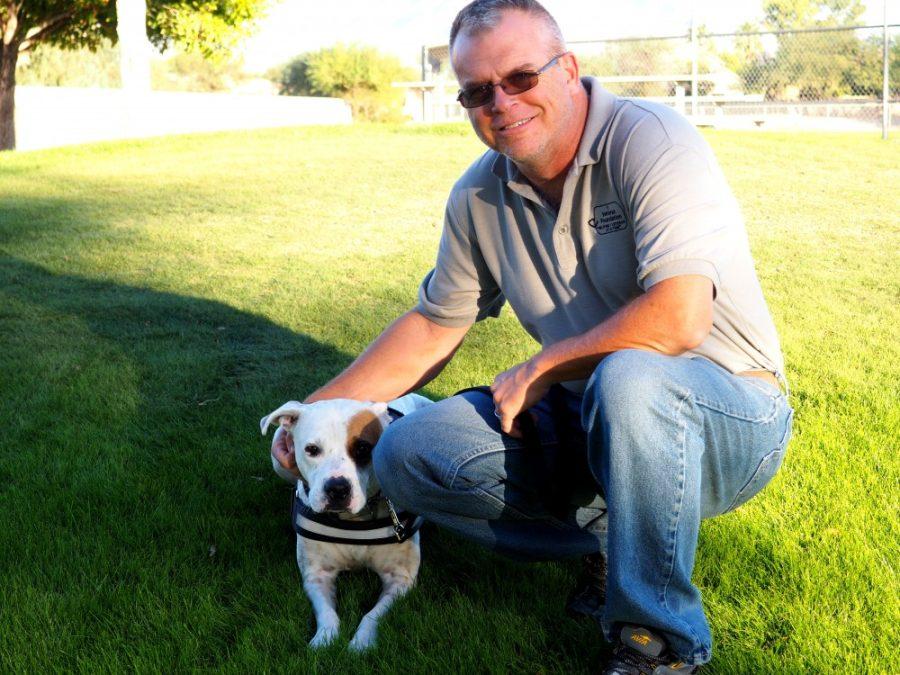Eleven to 20 percent of veterans suffer from Post-Traumatic Stress Disorder, and in Tucson, the 1 Veteran Foundation works to help those who suffer from PTSD by training service dogs.
Chairman David Rafus received his first donation for the company on March 21 and has been able to help train six dogs. The 1 Veteran Foundation partnered with Sublime Canine for the training and Pima Animal Control to adopt or rescue dogs.
“We have chosen to give the service dog to veterans at no cost to the veterans,” Rafus said. “If we were to get a dog out of California, it is about $30,000. I can do it for significantly less.”
Rafus, a veteran who served seven years in the U.S. Marine Corps, has suffered from PTSD for nearly 20 years, but was not diagnosed until a few years ago. Rafus suffered nightmares four to five times a week until he adopted his dog, Menifa. Now he has them once or twice a month.
Rafus began his company when he saw the impact Menifa had on him. He also realized it is expensive to train a service dog and didn’t want this to impede veterans suffering from PTSD from getting help.
“There has been a number of vets that had tried receiving help in various locations and places for PTSD and were not able to get it,” Rafus said.
Through his experimentation with Menifa, Rafus discovered service dogs helped veterans to remain calmer, cause their blood pressure to decrease, help put them in a happier state and have to take less medication. The service dogs allow people suffering with PTSD to go out in public without having to always be anxious about their surroundings.
In order to be eligible for a service dog, veterans must have a signed doctor’s note and go through a screening process.
“For us, our primary mission is to basically help one veteran at a time,” Rafus said. “Get the services and counseling they need, and provide them with a teammate.”
Rafus said many people who return from combat lose the feeling of having a team-like support system, and services dogs give them the security they lack.
“In the military, you become very reliant on your teammates,” Rafus said. “You may not like that person you are serving with, but the person you are serving with will put their life on the line for you. By providing them with a service dog, they have that same sense of safety.”
Rafus said when he started the company, 8,000 veterans were committing suicide every day. Those numbers have dropped since the program and ones like it were founded, and over 735 lives a year are being saved because of service dogs.
Susan Julien, 1 Veteran Foundation treasurer, said the hardest part about having a service dog is the struggle of having strangers wanting to constantly interact with it.
Julien said people trying to play with the dogs can be dangerous to the veteran. The dog can become distracted and unable to alert the owner in serious times of need.
1 Veteran Foundation attempts to find dogs that will be compatible with their owner. Rafus said if the dog shows any sign of aggression, they cannot be service dogs. The dogs get a sense of who they are supposed to be with and through that, the veteran feels secure.
Rafus’ goal was to place five dogs in the program within a year. It recently placed its seventh dog and by next year hope to double the number of veterans the foundation has helped.
The foundation also hopes to grow by helping families of veterans obtain dogs to help with emotional support.
“We can help by providing you with a service dog, a companion,” Rafus said. “The look in their eyes is relief—of just, ‘I’ll have my team back’—makes these guys feel like they can let their guard down and kind of be human again. It makes a big difference for these guys.”








